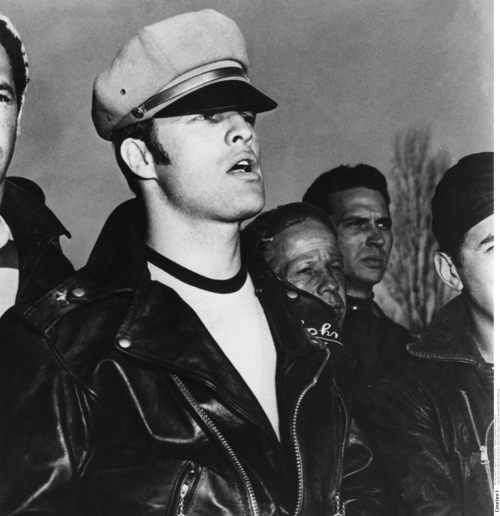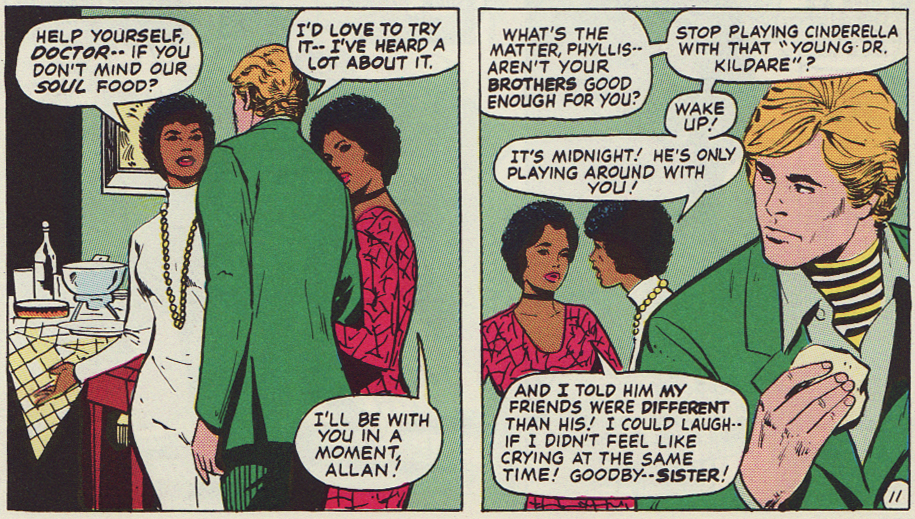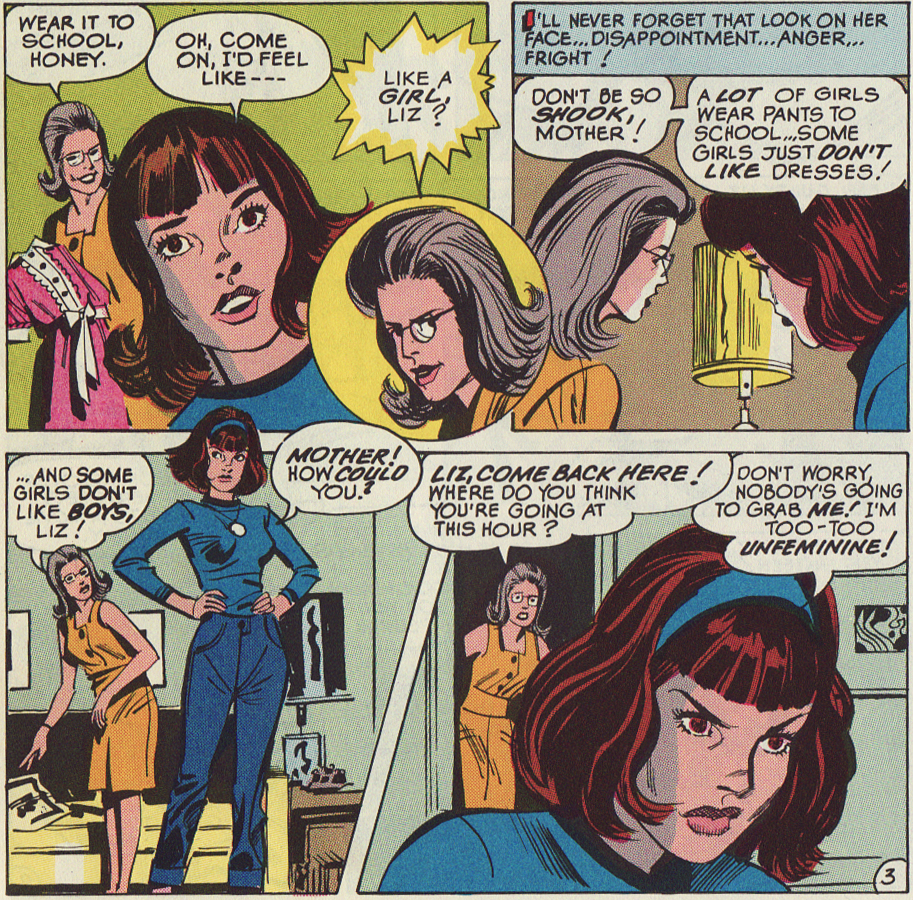
I wish I’d found this photo when I was gathering material for Pink Mini #4 — “Johnny, are you queer?”
[Source: bithouse]
Ragtag grab-bag

I wish I’d found this photo when I was gathering material for Pink Mini #4 — “Johnny, are you queer?”
[Source: bithouse]
 Take a minute and picture that woman working as a corrections officer at Rikers. The fact that an incredible singer like Sharon Jones languished in obscurity for years doing jobs like that is part of the tragedy of her background and the triumph of her finding success now. It’s terrible to think of that voice being wasted for so long, but I guess it took the right combination of people and opportunities — and perhaps enough time for a renewed interest in soul music to swing around — for Sharon to finally connext with Daptone Records and bust out once and for all.
Take a minute and picture that woman working as a corrections officer at Rikers. The fact that an incredible singer like Sharon Jones languished in obscurity for years doing jobs like that is part of the tragedy of her background and the triumph of her finding success now. It’s terrible to think of that voice being wasted for so long, but I guess it took the right combination of people and opportunities — and perhaps enough time for a renewed interest in soul music to swing around — for Sharon to finally connext with Daptone Records and bust out once and for all.
Daptone’s whole commitment to an authentic late-60s/early-70s soul sound would be a grating gimmick if they weren’t in earnest and didn’t get it all so right. They have such a good touch for showcasing incredible talent that perfectly channels the spirit of the original experience.
I’v been listening to Sharon Jones & the Dap-Kings for a few years, but had never had a chance to catch them live until last night, when they played with a few other artists from the Daptone stable — Charles Bradley and the Menahan Street Band — at the Barbican Centre. As much as I was looking forward to the show, it turned out to be so much better than I expected. There was so much energy on stage, and such a rich, tight sound. Sharon is much, much funnier than you’d guess from the soulful intensity of her singing voice, and she commands the stage with personality and dance moves that would put a woman half her age to shame. I just wish I had nearly as much energy as she’s got.


If you’ve met me, you’ve probably picked up on my being maddeningly, awkwardly shy, unless you’ve known me so long that you’ve forgotten about it. (Strangers terrify me, basically.) This has always been a bit of a problem, but has at least been easier to manage since learning to understand and manage the parts of being shy which are just plain old introversion.
“Caring for Your Introvert” is a 2003 Atlantic article by Jonathan Rauch that has been making the rounds for years, and is one of the first things that help me put my finger on this side of my personality, and make peace with it. The opening paragraph is powerfully resonant:
Do you know someone who needs hours alone every day? Who loves quiet conversations about feelings or ideas, and can give a dynamite presentation to a big audience, but seems awkward in groups and maladroit at small talk? Who has to be dragged to parties and then needs the rest of the day to recuperate? Who growls or scowls or grunts or winces when accosted with pleasantries by people who are just trying to be nice?
“Confessions of an Introverted Traveller” and “Six Tips for Introverted Travellers” are a pair of articles by Sophia Dembling about what it’s like to go to new places and see new things as an introvert, when all the writing and conventions about travel assume you wouldn’t be. Interestingly, I’ve found that an awful lot of the aspects of business travel, rather than leisure travel, are really well-suited for me. Hotels and other services usually assume that the business traveller is after some time to relax, unwind, and recharge to escape the demand of being “on the clock” all day, just because you’re away form home. That works really well for people who get worn out from a day or interacting with others.
“10 Myths About Introverts” by Carl King is a handy listicle on the subject. A good bit, which I hope my friends have already figured out:
Myth #5 — Introverts don’t like to go out in public.
Nonsense. Introverts just don’t like to go out in public FOR AS LONG. They also like to avoid the complications that are involved in public activities. They take in data and experiences very quickly, and as a result, don’t need to be there for long to “get it.” They’re ready to go home, recharge, and process it all. In fact, recharging is absolutely crucial for Introverts.



“To say that a moment is ‘very Barbara Pym’ is to say that it is a moment of self-observed, poignant acceptance of the modesty of one’s circumstances, of one’s peripheral position. A Barbara Pym moment also occurs when one realises that for those whom one is observing, one will never be an object of love. Tolerant affection, perhaps, but never deep, passionate love. Indeed, one is not really entitled to expect such an emotion, although it is ennobling, some say, to observe it in others.”
— Alexander McCall Smith, about Excellent Women